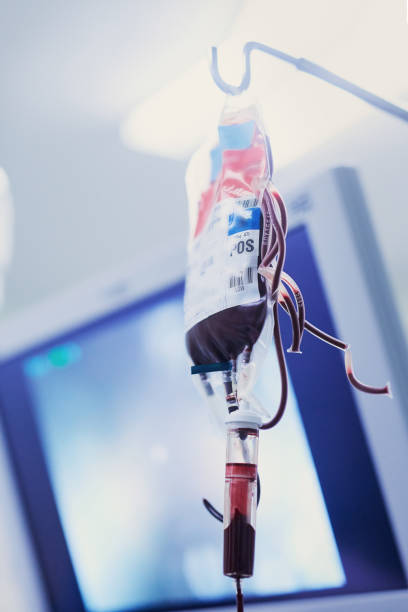Understanding Kidney Donation: A Comprehensive Guide
Kidney donation is a profound act of generosity and selflessness that can significantly impact the lives of those suffering from kidney disease. This guide explores the various facets of kidney donation, including its types, the process involved, the potential benefits and risks, and the experiences of donors and recipients. By delving into these topics, we hope to provide a comprehensive understanding of kidney donation and its importance in the realm of medical treatment.
What is Kidney Donation?
Kidney donation involves the transfer of a kidney from one individual to another. This act of donating a kidney can be done either by living donors or deceased donors. The primary goal is to provide a functioning kidney to individuals whose kidneys are no longer capable of performing essential functions, often due to chronic kidney disease or acute kidney failure. Kidney donation is a critical component of renal replacement therapy, which also includes dialysis and kidney transplantation.
Types of Kidney Donation
There are two primary types of kidney donation: living donation and deceased donation. Living donation occurs when a healthy person voluntarily donates one of their kidneys to someone in need. This type of donation is typically preferred when possible because it can be scheduled electively and often leads to better outcomes for the recipient.
Deceased donation, on the other hand, involves retrieving kidneys from individuals who have recently passed away. This type of donation is often a result of an organ procurement process following the declaration of death, typically due to severe brain injury or other circumstances leading to brain death.
The Kidney Donation Process
The process of kidney donation begins with a thorough evaluation to ensure the donor's health and suitability. For living donors, this evaluation includes a series of medical tests, psychological assessments, and consultations to confirm that the donation will not adversely affect the donor's health. The recipient is also evaluated to determine compatibility and the urgency of the need for a kidney.
Once the evaluation is complete and both the donor and recipient are deemed suitable, the surgical procedure is scheduled. For living donors, the surgery is typically performed laparoscopically, which is less invasive and involves smaller incisions. Deceased donor kidneys are retrieved during an open surgery, where the kidneys are carefully removed and preserved for transplantation.
After the kidney is transplanted, both the donor and recipient undergo a period of recovery. The donor may experience some discomfort and require time to adjust to the absence of one kidney, but most individuals lead healthy lives with a single kidney. The recipient, on the other hand, will require immunosuppressive medications to prevent organ rejection and will need regular follow-up care to monitor kidney function.
Benefits of Kidney Donation
Kidney donation provides numerous benefits, both to the recipient and the donor. For recipients, a successful kidney transplant can restore kidney function, improve quality of life, and significantly increase life expectancy compared to remaining on dialysis. Many recipients report a newfound sense of freedom and improved overall well-being following a successful transplant.
For living donors, the act of donating a kidney can be deeply fulfilling, knowing that their donation has made a tangible difference in someone else's life. Additionally, living donors often experience a sense of personal achievement and a strengthened bond with the recipient.
Risks and Considerations
While kidney donation is generally safe, it is not without risks. For living donors, potential risks include surgical complications, such as infection or bleeding, as well as long-term health considerations related to having only one kidney. It is essential for prospective donors to fully understand these risks and to have a thorough discussion with their healthcare providers.
For recipients, the primary risk involves the possibility of organ rejection. To mitigate this risk, recipients must adhere to a regimen of immunosuppressive medications, which come with their own set of potential side effects. Ongoing medical care and regular monitoring are crucial to ensure the health of the transplanted kidney and the overall well-being of the recipient.
The Role of Organ Procurement Organizations
Organ procurement organizations (OPOs) play a vital role in the kidney donation process, particularly in the context of deceased donations. These organizations are responsible for coordinating the retrieval of organs from deceased donors, managing the transplant process, and ensuring that organs are allocated fairly and efficiently. OPOs work closely with hospitals, transplant centers, and other stakeholders to facilitate successful kidney transplants and improve overall outcomes.
The Impact of Kidney Donation on Families and Communities
Kidney donation extends beyond the individual donor and recipient, affecting families and communities as well. For families of recipients, a successful kidney transplant can bring immense relief and joy, restoring hope and improving family dynamics. Communities also benefit from the enhanced health and well-being of individuals who receive a kidney transplant, leading to a more vibrant and healthy population.
Moreover, the act of kidney donation often inspires others to consider becoming donors or to support organ donation initiatives. This ripple effect can lead to increased awareness and education about kidney donation, ultimately contributing to higher rates of organ donation and improved outcomes for patients in need.
Ethical and Legal Considerations
Kidney donation is governed by a range of ethical and legal considerations designed to ensure the safety and fairness of the process. These considerations include informed consent, the prohibition of financial compensation for organ donation, and the need for transparency in the allocation of organs. Ethical guidelines and legal frameworks are in place to protect both donors and recipients and to uphold the integrity of the transplantation process.
Personal Stories and Experiences
Personal stories from kidney donors and recipients offer valuable insights into the emotional and practical aspects of kidney donation. Many donors describe their experiences as life-changing, highlighting the profound sense of satisfaction and fulfillment they gain from helping someone in need. Recipients often share their gratitude and the transformative impact a successful transplant has had on their lives, emphasizing the renewed hope and improved quality of life they have experienced.
Conclusion
Kidney donation is a remarkable and life-affirming act that holds the potential to transform lives in profound ways. Whether through living or deceased donation, the process involves a complex interplay of medical, ethical, and emotional factors. By understanding these aspects and the experiences of those involved, we can better appreciate the significance of kidney donation and its impact on individuals and communities. The continued advancement of medical practices and the growing awareness of organ donation can further enhance the effectiveness and reach of kidney transplantation, offering hope and improved health to many individuals around the world.




